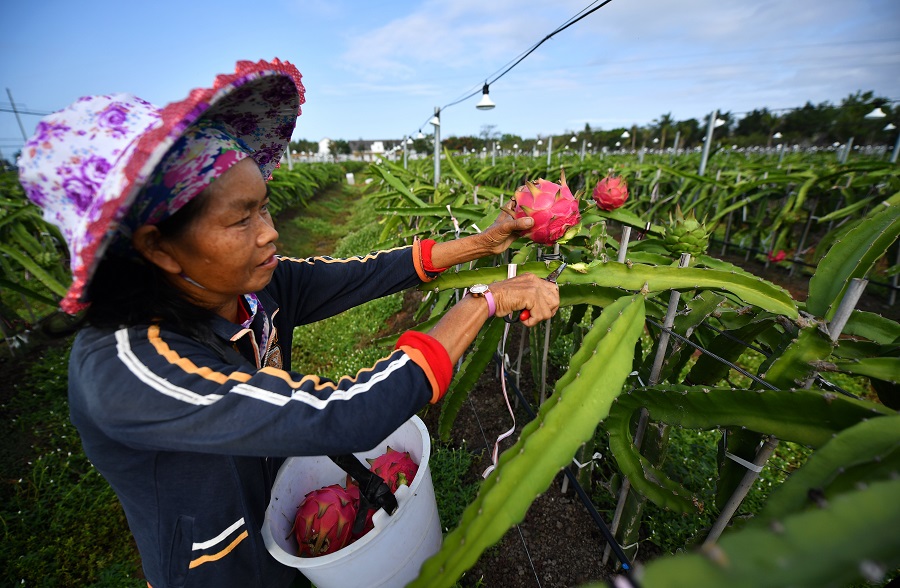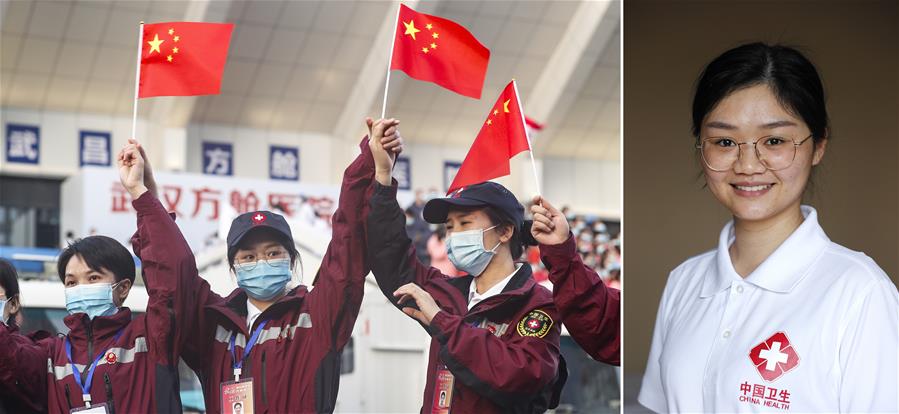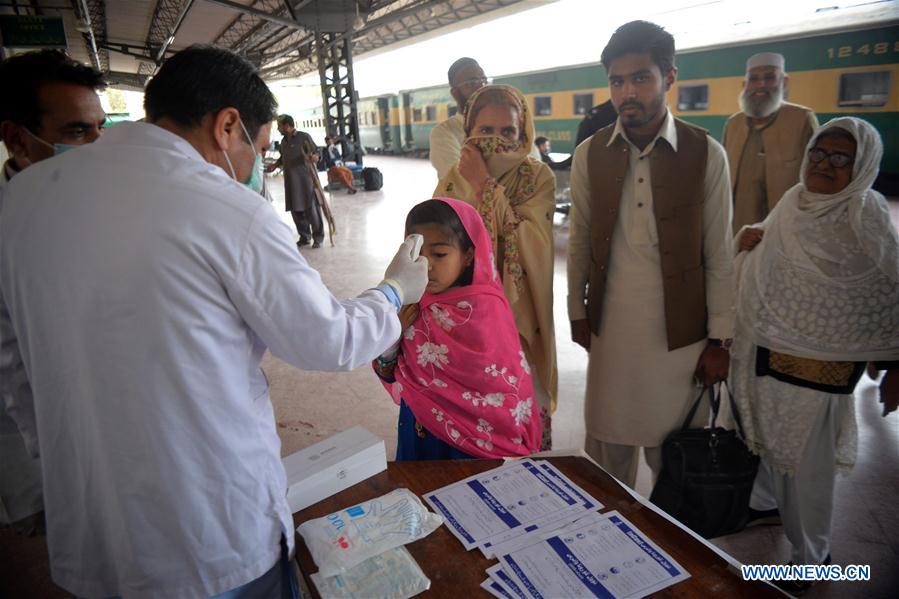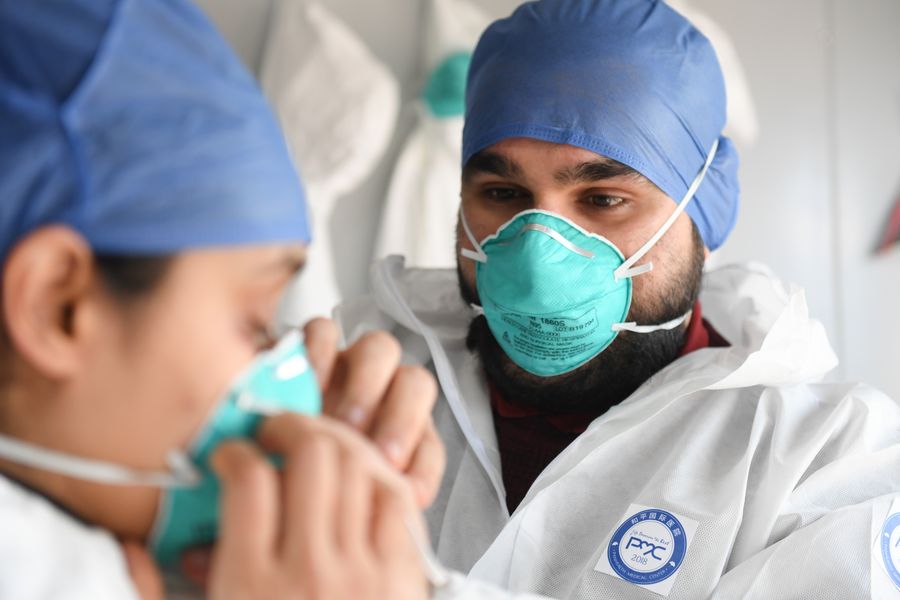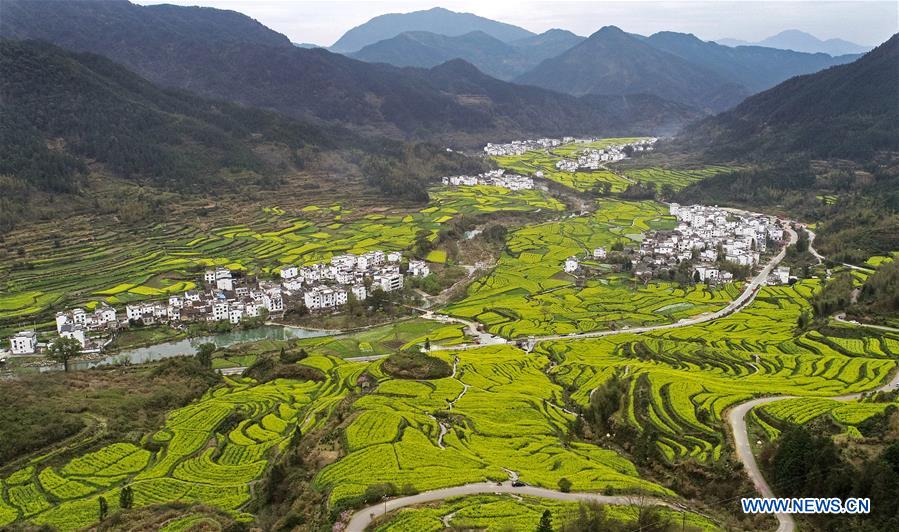The year 2020 marks the deadline for China to eradicate absolute poverty. Yet the unexpected COVID-19 outbreak has added to difficulties in realizing the great goal. Despite all the challenges posed by the novel coronavirus outbreak, the country determines to fullfill this goal.
by Xinhua writers Zhou Huimin, Qiang Lijing, Zhang Yujie
HAIKOU/CHANGSHA, March 18 -- As a screening personnel for epidemic prevention and control, Cai Yongquan has been on duty at his village entrance checkpoint every day since Feb. 9. His daily routine includes patrolling, disinfection and inspection.
The 50-year-old, who was temporarily recruited by the Longwei Village of Damao Township in the city of Wanning in south China's Hainan Province, got rid of poverty in 2017. He and his wife earned about 3,000 yuan (about 428 U.S. dollars) a month by doing odd jobs to make ends meet. Due to the novel coronavirus disease (COVID-19) outbreak, Cai was unable to go to work after the Spring Festival, resulting in no income for the family with three children.
To prevent him from returning to poverty, Cai was recommended to help with the screening work for epidemic prevention in his village.
"I can earn around 100 yuan per day from this job, which is enough for my family. I believe these difficulties are temporary, and we will go out to work when the outbreak ends," said Cai.
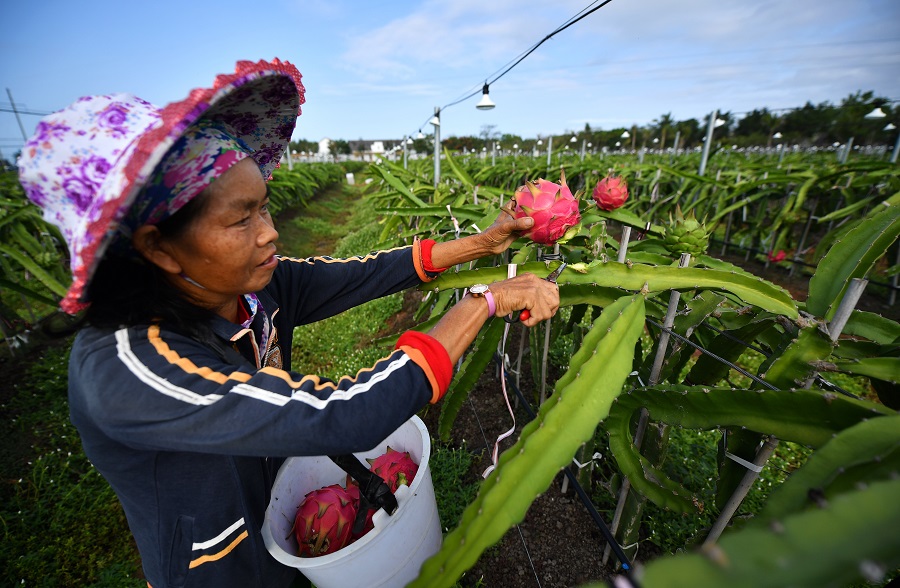
A farmer picks up pitayas at an orchard of the fruit company 18 Degrees North Latitude Orchard, a poverty alleviation demonstration base, in Dongfang City, south China's Hainan Province, March 6, 2020. (Xinhua/Guo Cheng)
The year 2020 marks the deadline for China to eradicate absolute poverty. Yet the unexpected COVID-19 outbreak has added to difficulties in realizing the great goal.
Chinese President Xi Jinping has stressed overcoming the impact of COVID-19 to clinch a complete victory in the fight against poverty. He said that lifting all rural residents living below the current poverty line out of poverty by 2020 is a solemn promise made by the Communist Party of China Central Committee, and it must be fulfilled on time.
The country's poverty alleviation tasks are near completion, as the number of impoverished people fell to 5.51 million at the end of 2019 from 98.99 million at the end of 2012, said Liu Yongfu, director of the State Council Leading Group Office of Poverty Alleviation and Development last week.
The impact of the epidemic on poverty alleviation is mainly manifested in the impoverished population's returning to work, the sales of poverty alleviation products and the resumption of the poverty alleviation projects, according to Liu.
"The income from working outside is an important guarantee for poverty alleviation of those impoverished households. The epidemic will affect their incomes, or even lead those who had shaken off poverty back to the poor situation again," said Lu Fuxing, a researcher with the Academy of Social Sciences of central China's Hunan Province.

